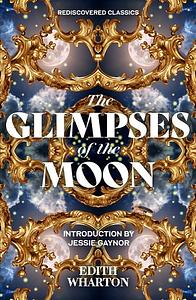Take a photo of a barcode or cover
This was an enjoyable criticism of society and privilege. Nick and Suzy were flawed but likable characters and the world which they inhabited was rich with detail. A beautifully written, realistic romance. (Jennings)
Two poor young people, both adept at living off their wealthy friends, combine forces and marry to live off their wedding gifts and offers of houses around Europe. How this deal comes undone when they each get the opportunity to marry money is a comedy of errors set in the decadent 1920s. Very enjoyable.
emotional
hopeful
reflective
medium-paced
Plot or Character Driven:
Plot
Strong character development:
Yes
Loveable characters:
Complicated
Diverse cast of characters:
No
Flaws of characters a main focus:
Yes
emotional
reflective
slow-paced
Plot or Character Driven:
Character
Strong character development:
Yes
Loveable characters:
Complicated
Flaws of characters a main focus:
Yes
This book read like a Fred Astaire and Ginger Rogers musical...about two people who really love each other and should be together, but they keep on having misunderstandings and the characters have such close brushes with finally understanding what the other is up to, that it is positively agonizing for the reader. This got a little tiresome after a while. I don't know what I think of Wharton as a comic author...the genre seems to partially eclipse the exquisite sadness that is her genius.
emotional
lighthearted
reflective
medium-paced
Plot or Character Driven:
Plot
Strong character development:
Yes
Loveable characters:
Yes
Diverse cast of characters:
No
Flaws of characters a main focus:
Yes
Susy and Nick belong to the moneyed, leisure class - the jet set of their era - the problem is that their families left them no money. After years of hanging on in their own way on the fringe of this crowd, the two decide for a bold experiment - to marry each other, without money, and to live on the wedding checks for as long as they can. The other part of the arrangement is that if either of them has the chance for better, the other will help them to it.
Wharton wastes no time in revealing the deficiencies of this arrangement or the different ways that Nick and Susy have had to adapt to survive in their world. Both have a code of conduct that dictates how they respond in different situations, to Nick it quickly becomes evident that Susy's code falls far short of his own.
I'd never read anything of Wharton's before and this novel comes across as much more fresh and modern in style and substance than I would have given her credit for. If I thought of her at all, I thought of the decadence of the late 19th century, grand drawing rooms and dinner parties. That world has evolved in this story, the rich have divorced themselves from the hypocritical conduct of their parents and grandparents and live in increased isolation despite their palatial nomadic lifestyle, absorbed in status and themselves:
"That was the way of the world they lived in. Nobody questioned, nobody wondered any more-because nobody had time to remember. The old risk of prying curiosity, of malicious gossip, was virtually over: one was left with one's drama, one's disaster, on one's hands, because there was nobody to stop and notice the little shrouded object one was carrying."
Even if their friends didn't notice, I couldn't help getting caught up in the misunderstandings and the soul-searching of the couple. I admired how Wharton approached the problem. An excellent introduction to her work, I look forward to more.
Wharton wastes no time in revealing the deficiencies of this arrangement or the different ways that Nick and Susy have had to adapt to survive in their world. Both have a code of conduct that dictates how they respond in different situations, to Nick it quickly becomes evident that Susy's code falls far short of his own.
I'd never read anything of Wharton's before and this novel comes across as much more fresh and modern in style and substance than I would have given her credit for. If I thought of her at all, I thought of the decadence of the late 19th century, grand drawing rooms and dinner parties. That world has evolved in this story, the rich have divorced themselves from the hypocritical conduct of their parents and grandparents and live in increased isolation despite their palatial nomadic lifestyle, absorbed in status and themselves:
"That was the way of the world they lived in. Nobody questioned, nobody wondered any more-because nobody had time to remember. The old risk of prying curiosity, of malicious gossip, was virtually over: one was left with one's drama, one's disaster, on one's hands, because there was nobody to stop and notice the little shrouded object one was carrying."
Even if their friends didn't notice, I couldn't help getting caught up in the misunderstandings and the soul-searching of the couple. I admired how Wharton approached the problem. An excellent introduction to her work, I look forward to more.
Susy and Nick run in a pretty posh crowd. But neither has any money, so they are, essentially, groupies of the rich and famous. Susy has a proposition for Nick- what if they got married, but when a better prospect came along for either of them, they would be released from the marriage?
It's very difficult to relate to this scenario, in the world of American Hollywood endings and "you can do whatever you put your mind to". But in a culture where women didn't have many opportunities to be independent, I can understand that this could present a real conundrum. However, why was wealth and the desire not to work so important? I don't mean to suggest Wharton herself thought so, but obviously she is reflecting attitudes of the time. It makes me sad for those stuck in that situation.
Food: very dry champagne. Good for a sip or two, but too much leaves a bad taste in my mouth.
It's very difficult to relate to this scenario, in the world of American Hollywood endings and "you can do whatever you put your mind to". But in a culture where women didn't have many opportunities to be independent, I can understand that this could present a real conundrum. However, why was wealth and the desire not to work so important? I don't mean to suggest Wharton herself thought so, but obviously she is reflecting attitudes of the time. It makes me sad for those stuck in that situation.
Food: very dry champagne. Good for a sip or two, but too much leaves a bad taste in my mouth.
Wow such a great female protagonist, I haven’t read anything like her before, especially from this era. Great characters and keep you hanging on all the way to the end!
slow-paced




